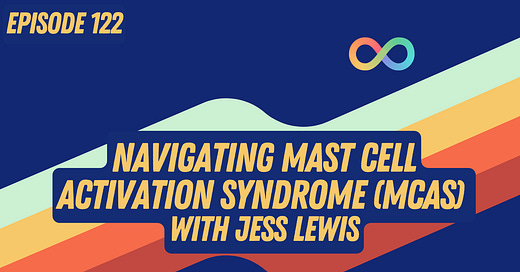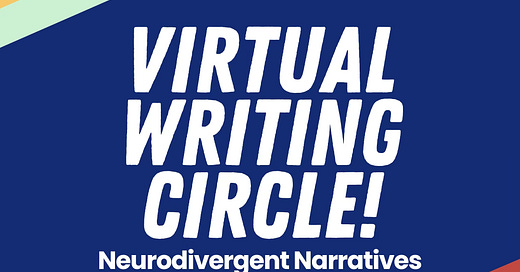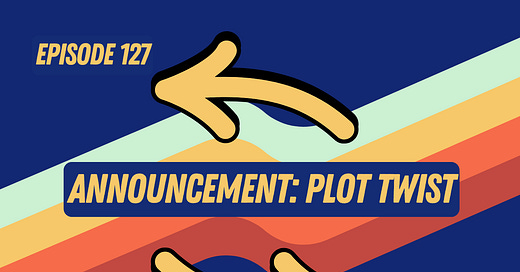
How to Listen Effectively to an Autistic Infodump
Read now (5 mins) | A guide for neurodiversity-affirming allys who want to be better communicators with Autistic people
May 1, 2023
Do you love someone who is Autistic? One of the features of our hyperconnected brain is called monotropism.
Monotropism is a term coined by Dinah Murray (1992) to describe an orientation of attention that focuses on a narrow range of interests.
Murray hypothesized that “this highly-aroused focus on a restricted range of interests is more isolated from a web of cognitive associations than is the case for individuals who have a polytropic focus of attention.”
For non-Autistic people (allistics), there is ambiguous comfort that comes from small talk or catching up with an old friend. That same sort of comfort is felt by Autistics engaged with their special interests.
This is because allistic brains are just out there doing their polytropic thing: “Hi Sam! How’s the new car!” “Hi Sally! Looking good!” “Bob! Have you seen the latest on the Sportsball?” To a polytropic brain, this is like an episode of Mr. Rogers, and to a monotropic brain, this is…well…hell on earth.
If you love someone who is Autistic they will - whether you want it to happen or not - end up sharing their special interests, often for many, many consecutive minutes. This speech activity is affectionately referred to in Autistic Culture as an info dump.
If you want to be a diversity-affirming communicator and someone you love is infodumping on you—especially if it’s about a topic you really don’t have a lot of interest in—here are some tips for how to use this conversation as an opportunity to connect.
Trying to shift an Autistic person off their special interest with logic about the time or passive-aggressive eye rolls is NOT recommended.
But if there are reasons you want to get out of this conversation, I will help you with that as well.
Okay, so tips for CONNECTING with an Autistic loved one info-dumping about something you don’t care about:
Start to notice them shifting into monotropic focus or Flow. Notice how their eyes light up. Focus on how engaged and excited they are. Energetically see if you can FEEL excited just because they are excited.
Don’t interrupt a Flow - though you can take notes - again even if you don’t care. Taking notes or looking up related info will show you care and will make your Autistic loved one feel your love.
Try to find any tiny detail about the topic that you are interested in. If the info dump is about the Huguenots which you don’t care about try to relate it to something you do care about - like entertainment. Ask your loved one if they know any movies or TV shows that you might know with Huguenots in them. Questions about our special interests delight us and make us feel cozy the way small talk with neighbors might make allistics feel or like catching up on random family gossip of people you don’t know.
If you are feeling bored, try asking WHY: Why do you love the Huguenots so much? Why do you think you are interested in this topic? Or you can try HOW questions: How did you first stumble upon this special interest? Or WHO: Who introduced you to this topic?
Challenge them…Ask your loved one to blow your mind. You can say something like “I am clearly not as knowledgeable or interested in this topic as you, but I love being surprised! What’s the one thing about this topic you think is the most surprising or exciting?"
If it’s music, TV, or a movie - ask for ONE scene or ONE song but then ACTUALLY watch it. You can say: "Look, I am not going to watch all 89 Seasons of The Love Boat but I will watch your favorite clip and I’d love to hear why it’s your favorite."
Okay, now the don’ts…
First and foremost…no, we cannot read the room. So let’s start with this fun fact, if you are silently wishing we would take the hint and stop talking, it’s time to get Neuro-diversity-aware and realize in an allistic/autistic conversation the pressure is on the Allistic to be straight forward. If you put pressure on the Autistic to read the room it not only harms the Autistic person but, honestly, the other party is going to be disappointed because no amount of shock therapy has succeeded in getting Autistic hyperconnected brains to do this (yes, that is a dig at ABA).
Do not use the logic of time and think we are going to make the connections of how long we are talking. We lose track of time when we are interacting with our special interest. It’s great to make time visual, even with showing us the timer or clock on your phone: “We have to leave in 5 minutes, and I need time to get ready. Can we pause on this conversation and come back to it? I really want to hear but I can tell I’m not focusing.” Make it about you and your needs…Don’t tell the Autistic person they need to get ready or try to rush them into talking about their special interest faster or more efficiently - not gonna happen.
If you don’t care, be very straight forward. This is MORE kind for Autistic people than lying to us. You can say “I know this is your special interest and I wish I could be excited about it, but I’m not. Can I ask you if we can either switch the topic or maybe just go our own ways right now?” THEN…Don’t expect us to be cool with that. It’s like saying “I hate when you talk about your spouse. She’s so boring. I’ll stay friends with you—just don’t talk about your partner or your grandmother.” Please know that we WILL be deeply hurt. So if you are going to go this route, allow us to have hurt feelings. We will likely get over it, but don’t gaslight or blame us. In Autistic Culture being straight forward is the most kind and loving approach.
If you meet a friend or a friend’s kid who you know is Autistic a great approach is to ask about their current interest. Even if the person is non-speaking I always start with “Tell me what you love the most in the world right now!” Or I sign: “YOU. LOVE. WHAT?” I bet you could figure out those signs even if you don’t know them!
If you love an Autistic and want them to know you love them or feel more connected to them, do it through their special interest—not because you love the interest but because you love the person.
Instead of spending an hour packing leftovers and saying goodbye over and over again, take that same hour and watch our show, listen to our music, or let us give you a loving and appreciation-filled info dump on our favorite topic.
And if you love us but hate our info-dumps, my vote is don’t lie to us and pretend it’s okay when it’s not because that will make me info dump more and be surprised that you hated it the whole time. I would MUCH rather someone be honest and direct and not lie to me than seem half engaged or worse—seem totally engaged and then call me boring or narcissistic behind my back.
Autistic People: Comment more tips.
Allistic People: All Autistic people are different, so always ask your Autistic loved what they prefer.
Got follow-up questions? Drop them in the comments!
*Background note: Most people only have a vague (often, highly stereotyped) version of autism in their minds and believe that autistic children need (traumatic) ABA therapy to "overcome" their disability and appear "normal." After receiving an autism diagnosis in her thirties, Dr. Angela Lauria realized that she too had been mostly unaware of what it means to be Autistic. Like so many people, she started her journey by first gathering information and resources from the omnipresent (and problematic) Autism Speaks, but eventually moved away from the 'autism community' in favor of the 'Autistic community,' where she found kinship with other Autistic individuals and learned to let go of pathologizing language like 'autism spectrum disorder' and 'Asperger's Syndrome.' This autism blog (and her autism podcast, "The Autistic Culture Podcast") is meant to share her lived-experience insights to support others on a similar journey of diagnosis, understanding, and community. Embrace Autism--differences are not deficits.














